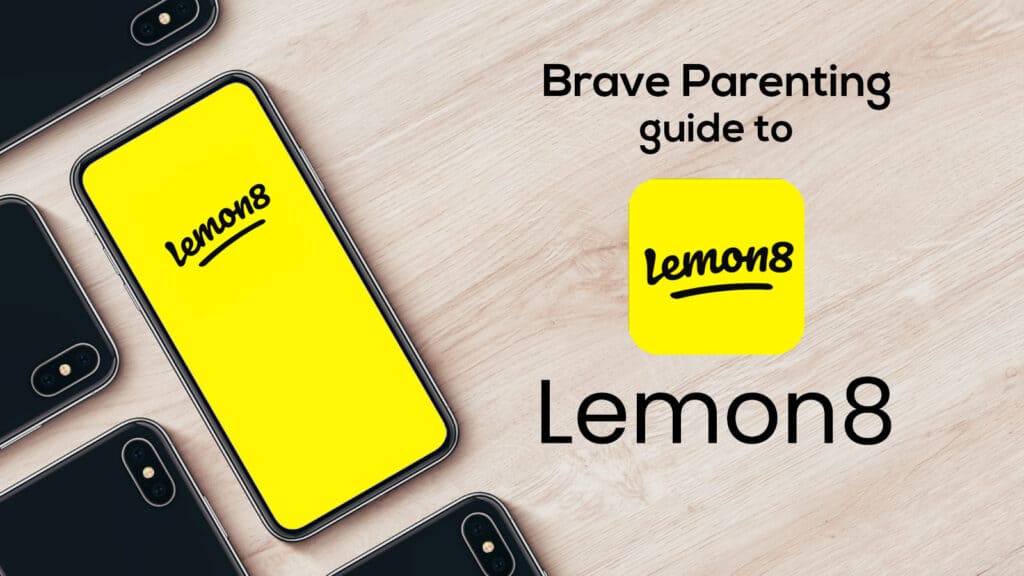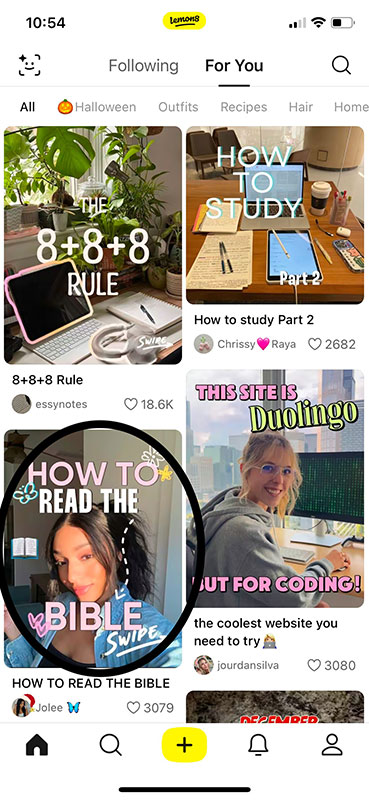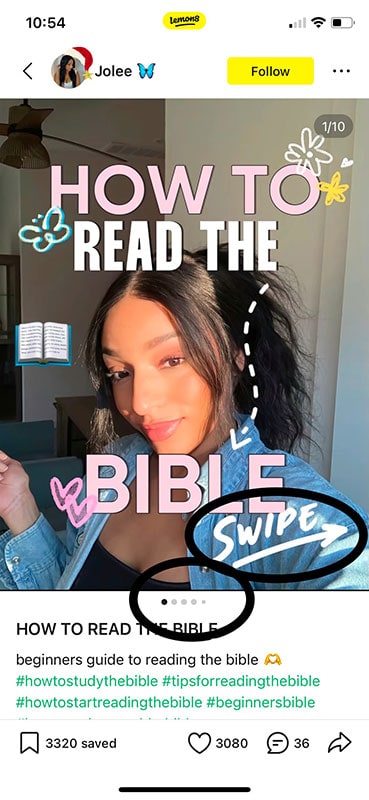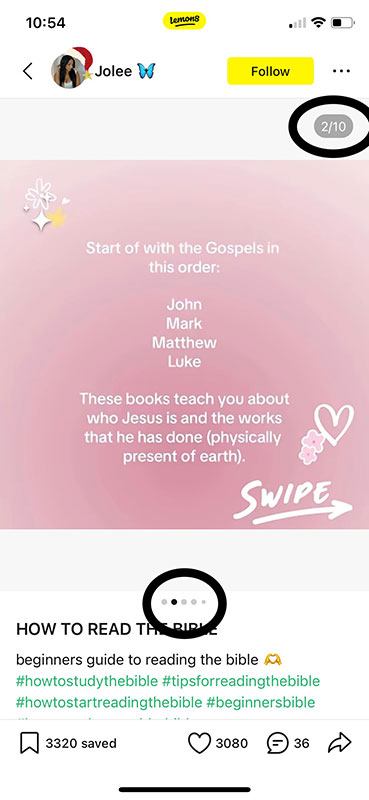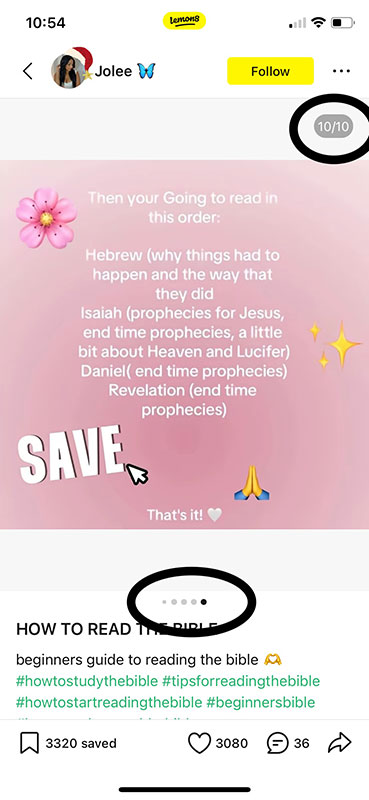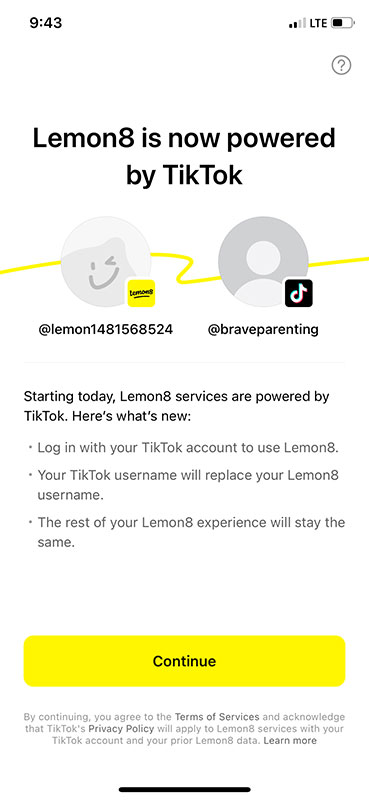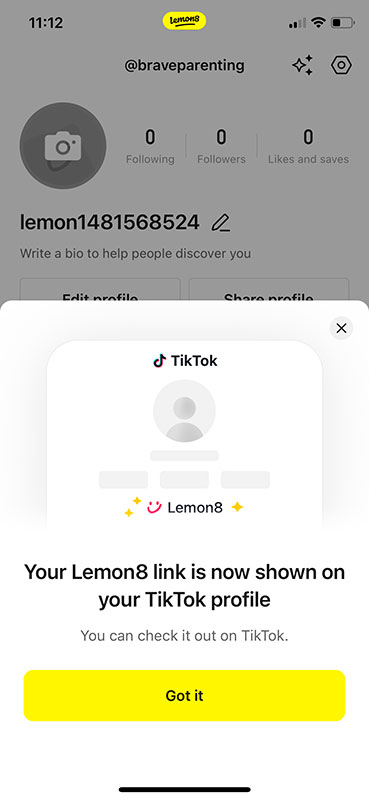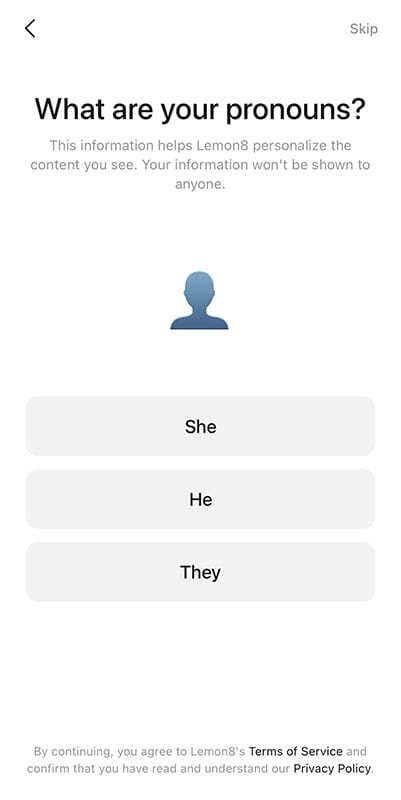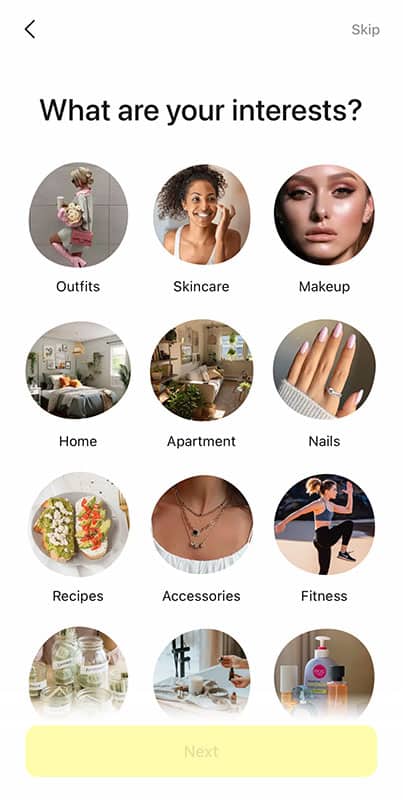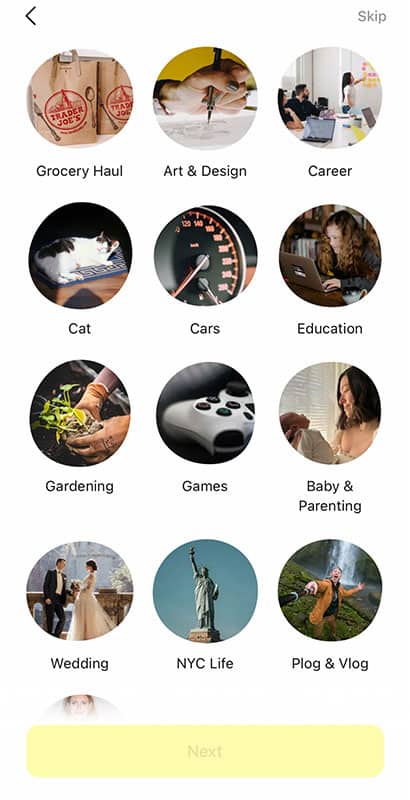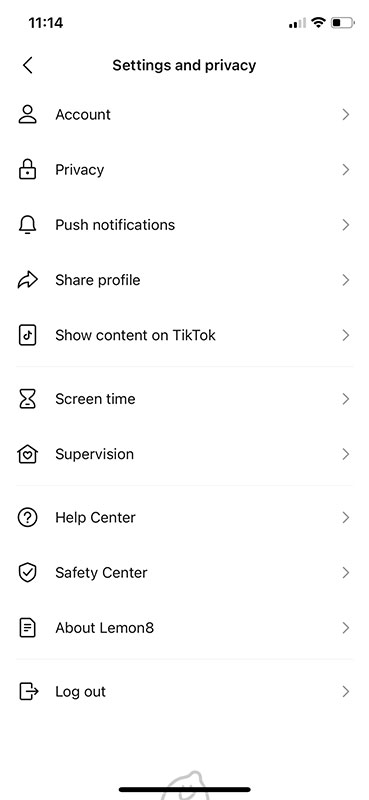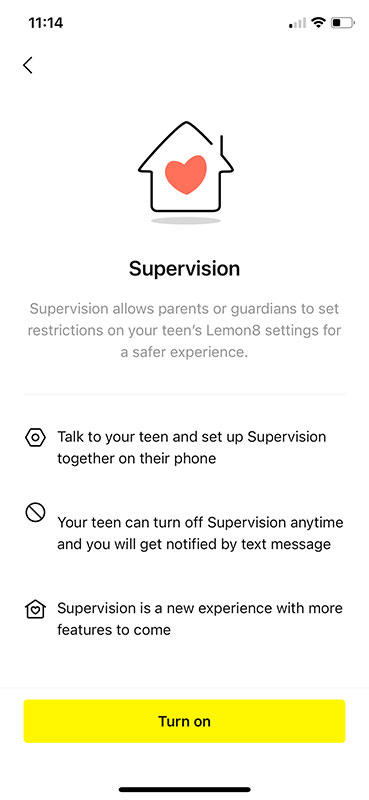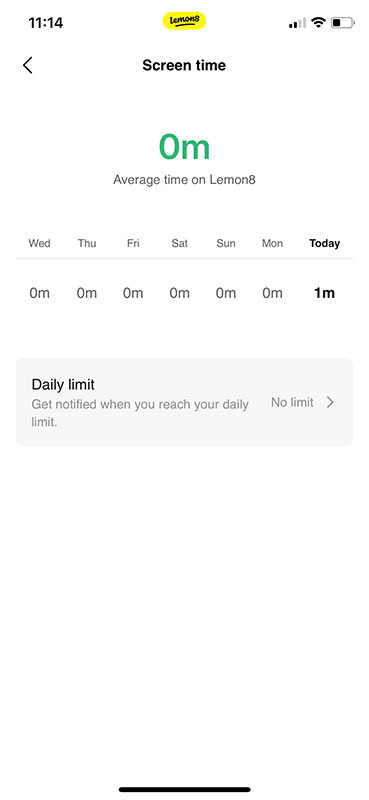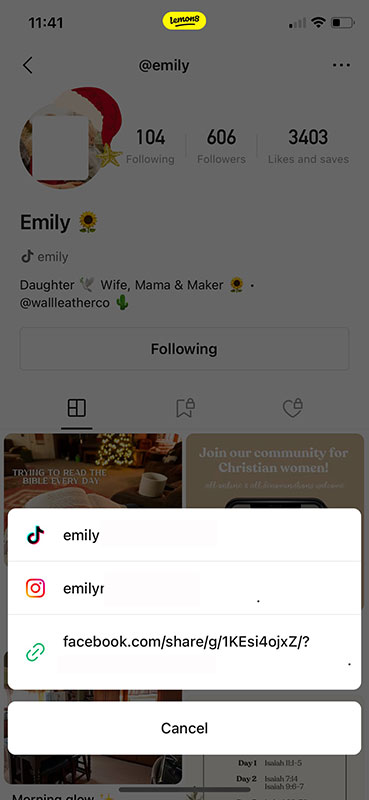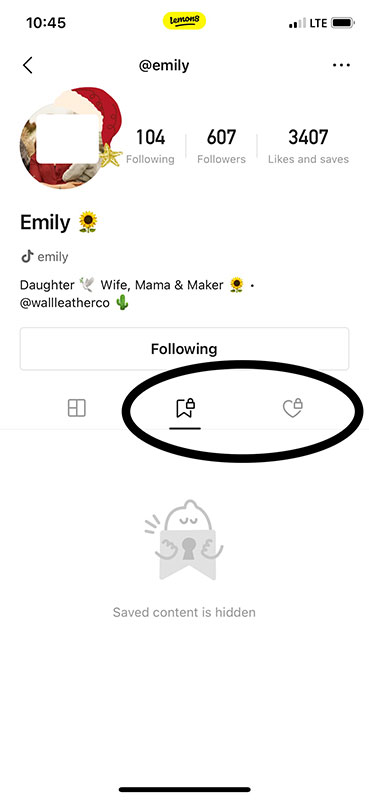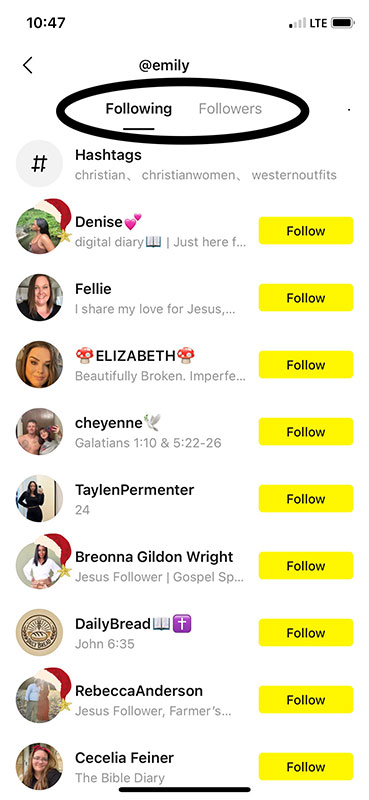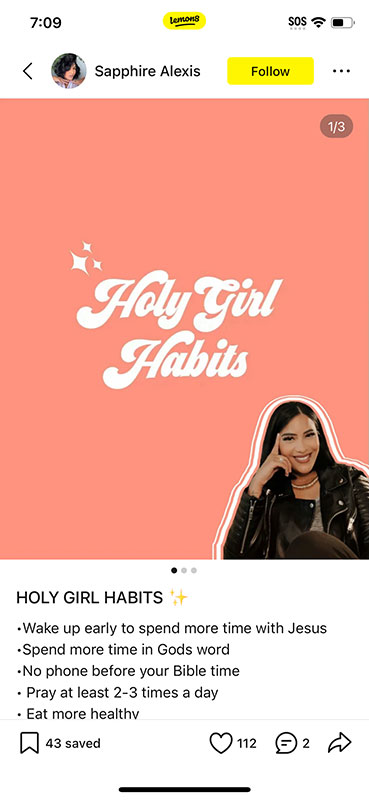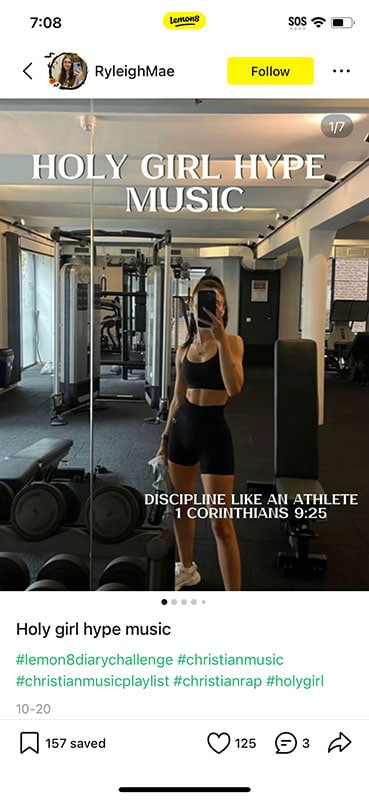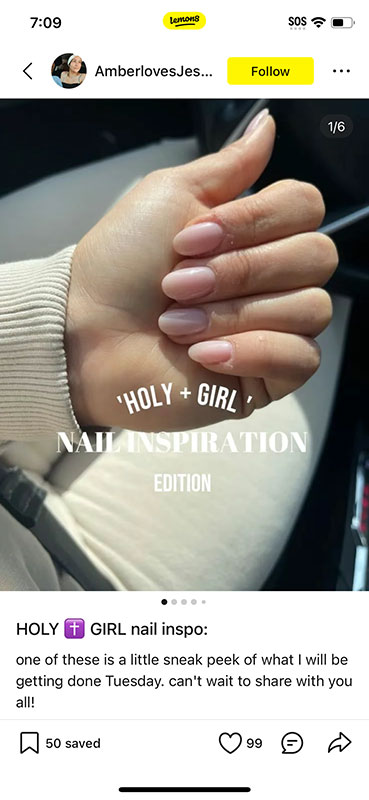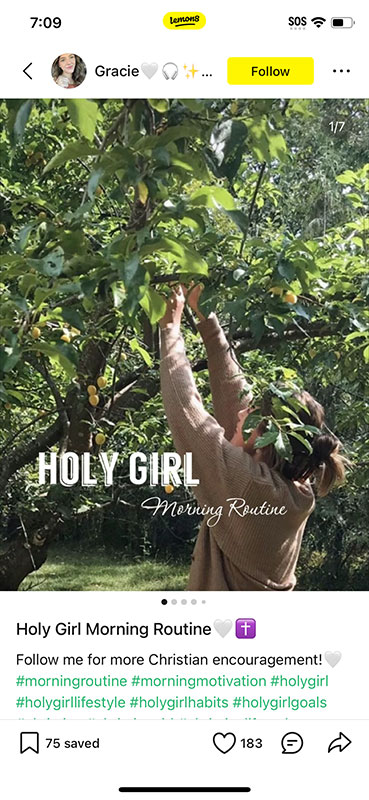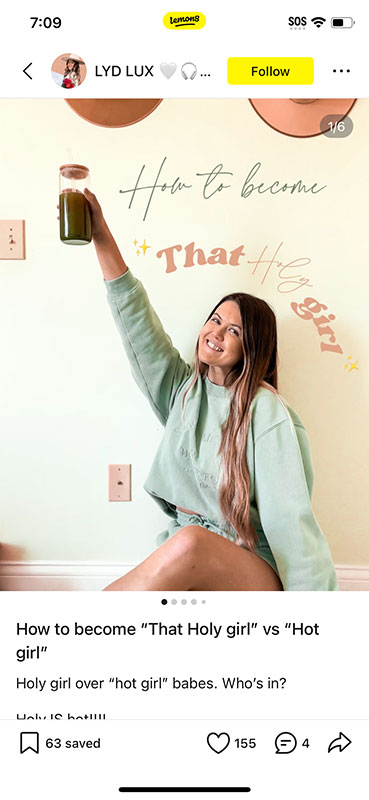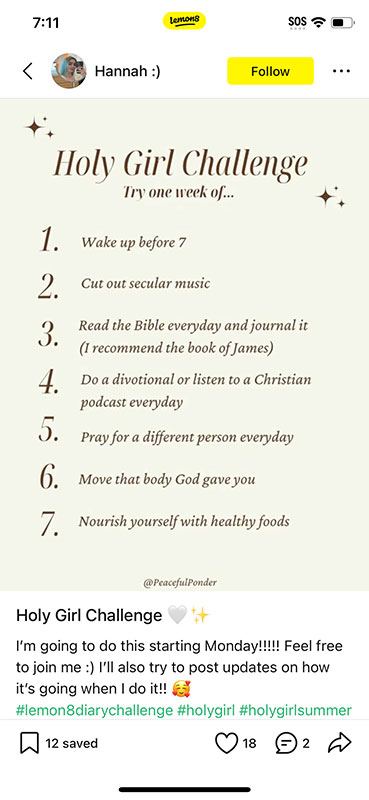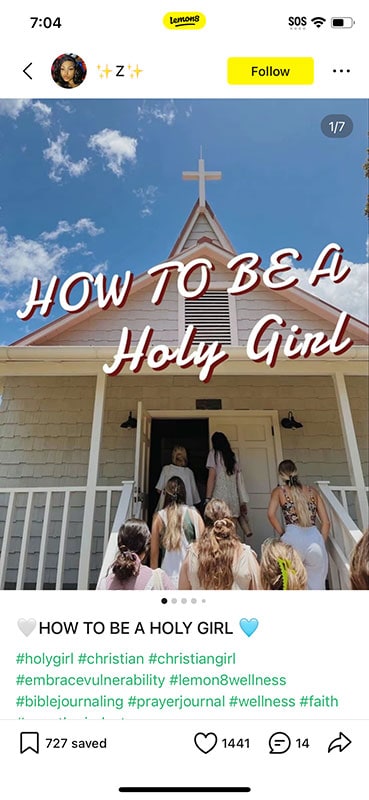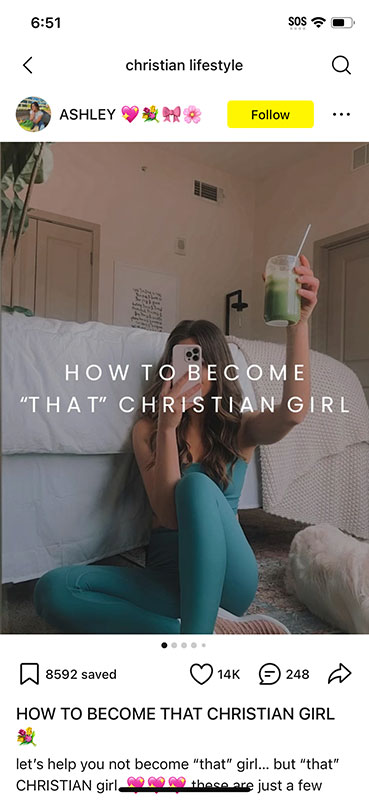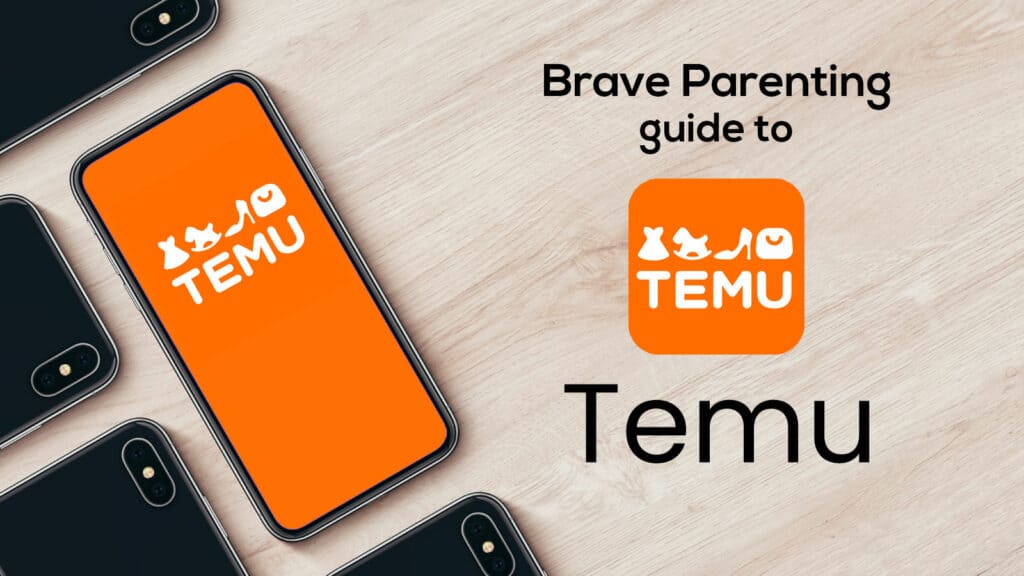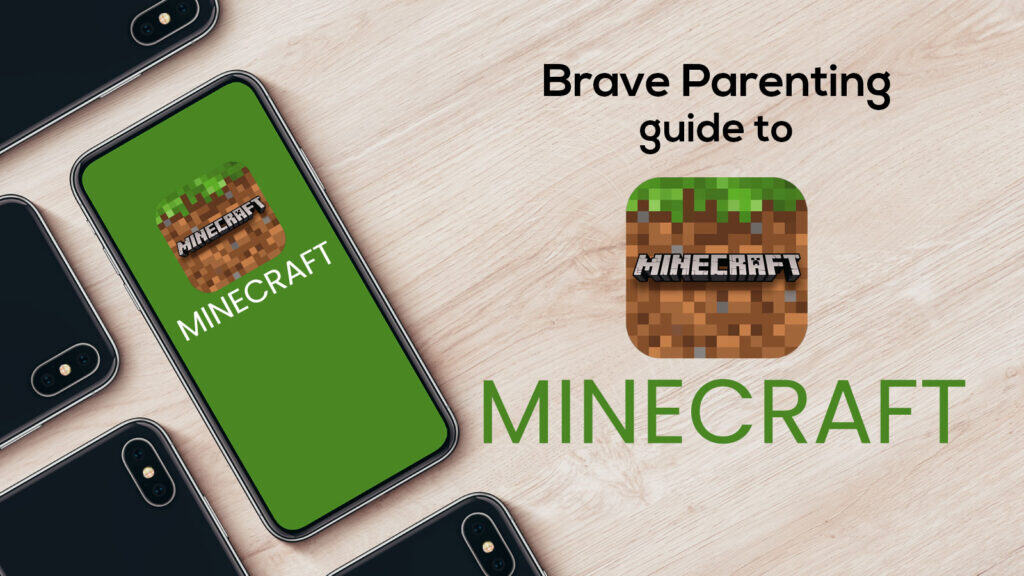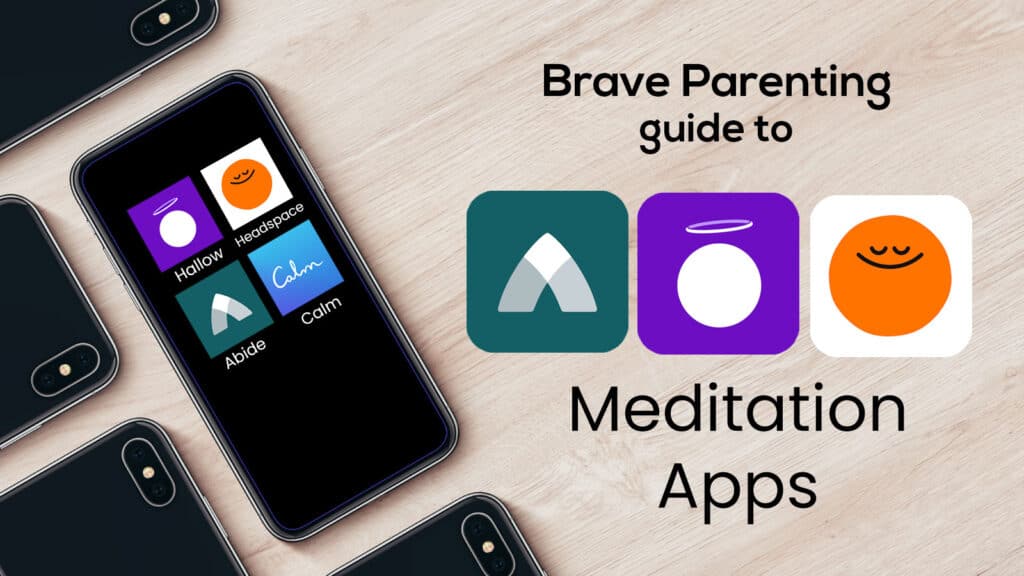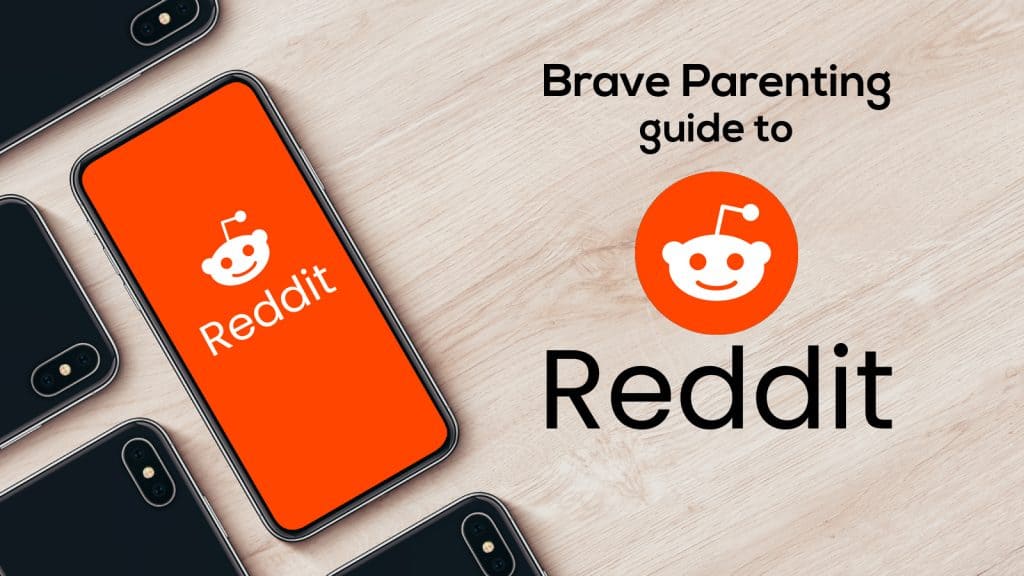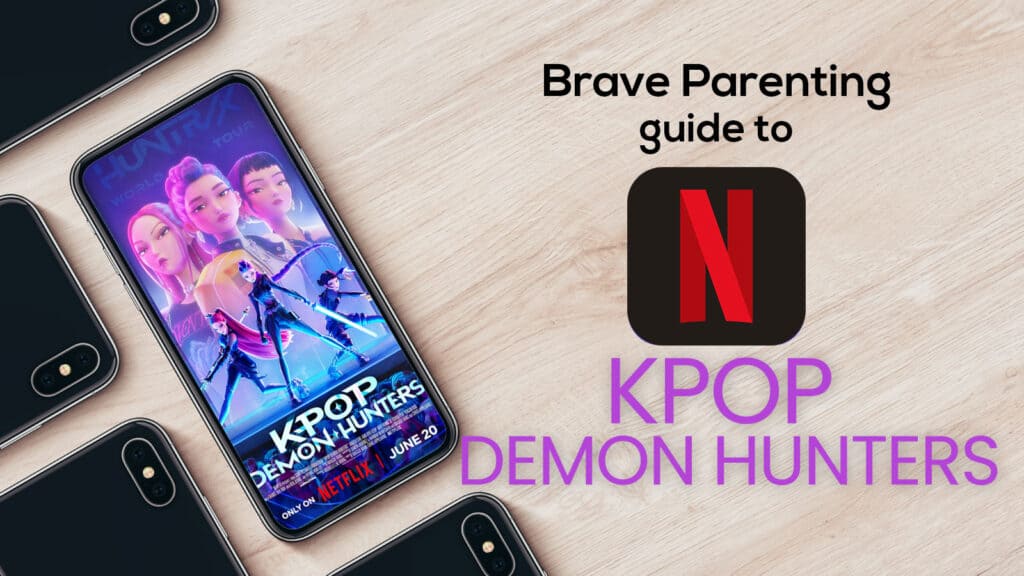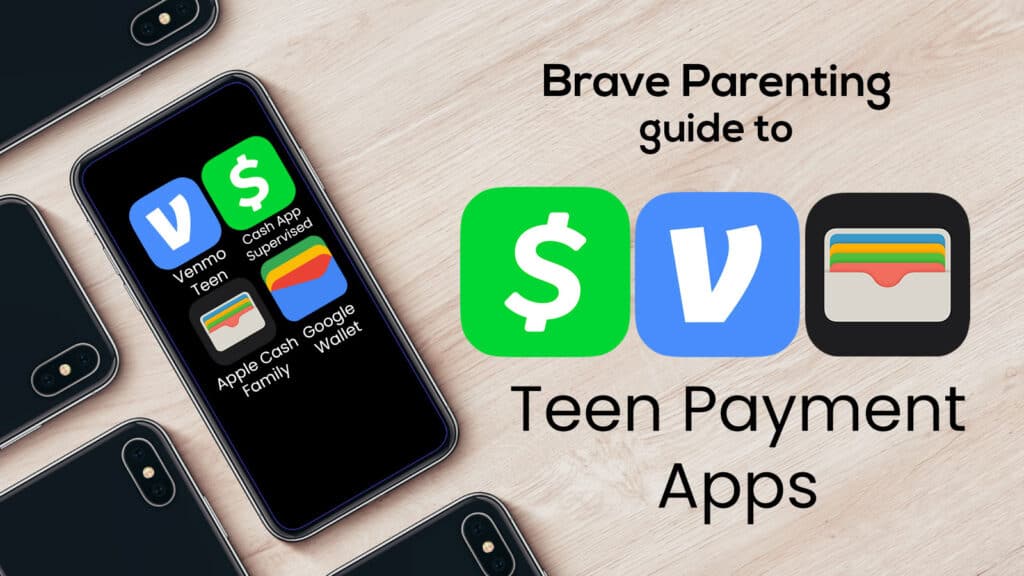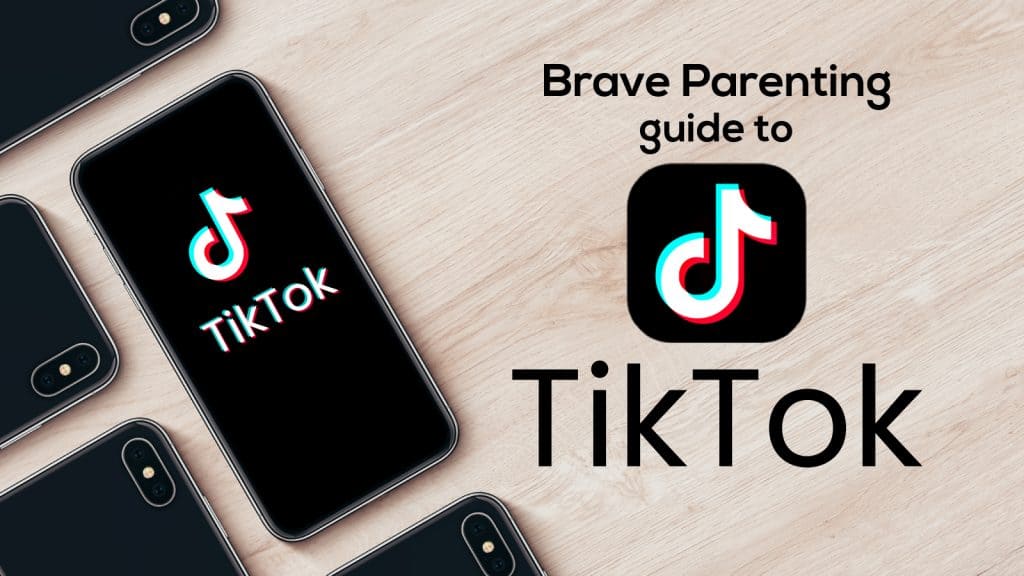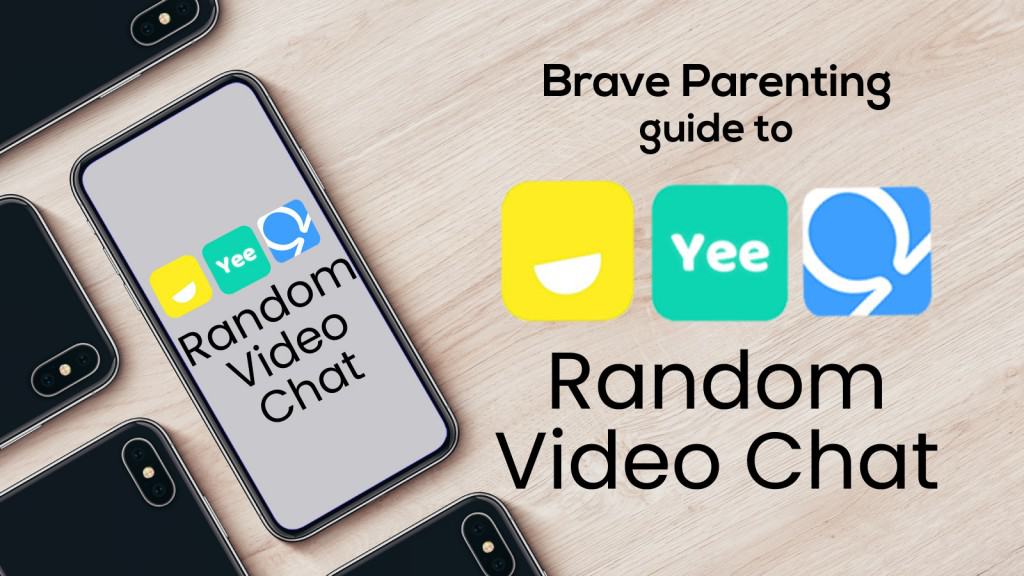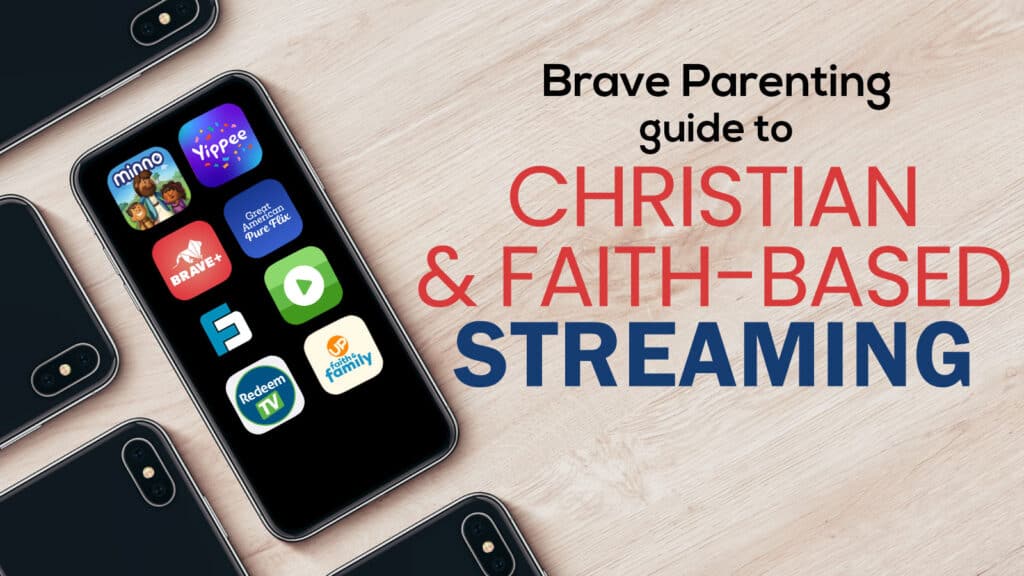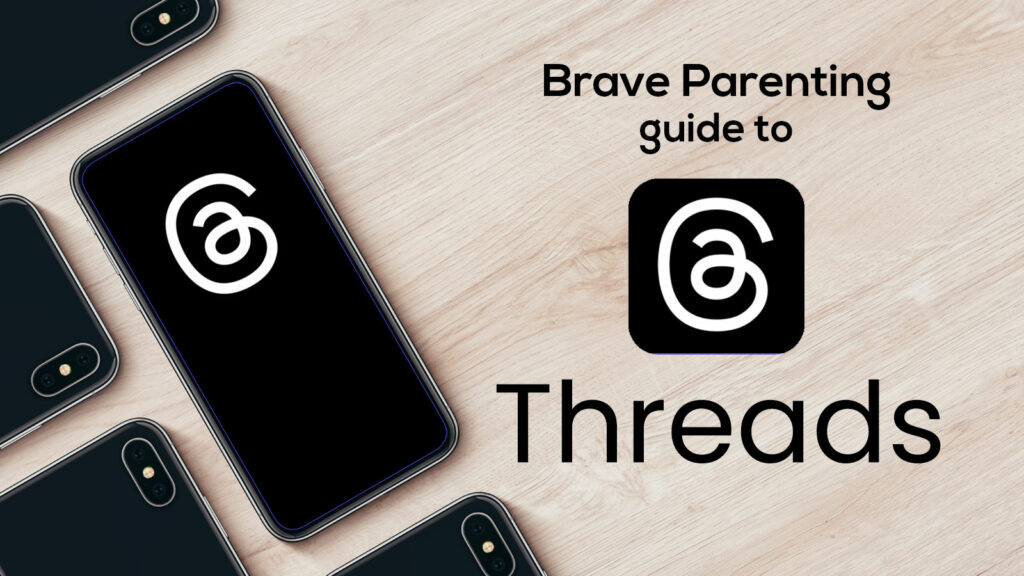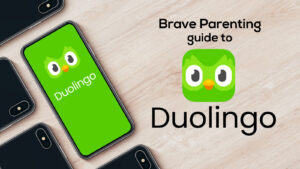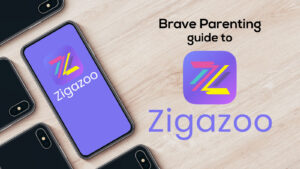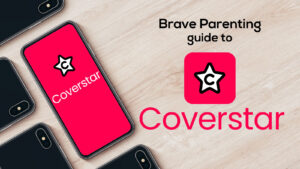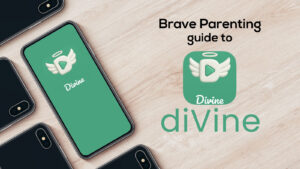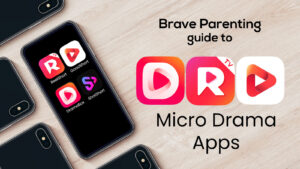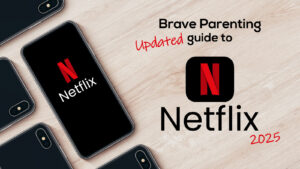As a U.S. TikTok ban looms, its sister app, Lemon8, is gaining prominence. This guide will help you understand the app and biblically consider its use in you and your teen’s lives.
Here are 5 facts every parent needs to know about Lemon8.
#1 What is Lemon8 (powered by TikTok)?
Lemon8 is a “lifestyle community” app owned by the same company that owns TikTok. Most describe it as a mix of Instagram and Pinterest. Designed to share authentic content on topics such as food, fashion, and travel, the app aims to offer a space for sharing, inspiring, and supporting one another.
The look and feel of Lemon8 are similar to TikTok. However, content appears in “slideshow” form. Typically, 4-6 curated and edited photos make up one post. The app has a “For Your Feed” that requires users to tap into the post to scroll through the “slides.” See the example below (which actually has 10 photos).
Lemon8 is owned by ByteDance, the parent company of TikTok. In November 2024, the company launched an integration of the two apps. While the two remain separate apps, they will share a login (the Lemon8 account name becomes the TikTok account name).
A TikTok press release states, “This account integration gives our community even more access to create, edit, upload, and share photo content with like-minded communities for creative expression and connection.”
This is code for: In the case that TikTok is banned in the U.S., all accounts (and their data) will be preserved on Lemon8.
#2 Creating an Account
Lemon8, like all social media apps that thrive on data collection, requires users to be 13 years or older.
After downloading the app, you choose your pronouns, select interests to help curate your “For You Feed,” and choose a username.
There is not a single age verification step. Your ‘For You Feed’ begins immediately.
#3 Content Moderation
The app has thorough and appropriate community guidelines and allows users to report other users who violate those guidelines.
According to Lemon8, while they allow a range of content, they recognize not all content is suitable for younger audiences. They claim they only moderate/restrict content to adult audiences (18+). Furthermore, they claim they moderate the For You Feed so that content from users under 16 are ineligible.
That sounds great in policy, but the question remains: how is this enforced if they do not require a date of birth when creating an account? We all know kids can lie about their age when it is required, but how Lemon8 can boast content management inappropriate for younger users when they don’t know who the younger users are is unstated. (It’s either AI facial analytics, or they don’t actually moderate this.)
#4 Privacy & Safety Concerns
Lemon8 has added significant safety features since its first release in February 2023.
Here are the positives:
- Users can now have a PRIVATE account. This allows followers only to see posted content.
- Users can choose to share posts with EVERYONE or ONLY ME.
- Users can hide the posts liked and saved from others to see.
- Parents can set up Supervision for their teens. Granted, Supervision can be turned off at any time by the teen, but they notify the parent if that happens.
- Screen Time is viewable, and limits can be set to receive a notification when the daily limit is reached.
But there remain an equal amount of safety and privacy concerns:
- Users can always see who another user follows and who follows them. The app’s purpose isn’t to follow friends but rather to find a community with shared interests.
- Users can link their TikTok, Instagram, X, YouTube, and website to their Lemon8 account. These links appear on the user’s profile. One tap takes you to the user’s other social media accounts while still “remaining” in the Lemon8 app. This BACK DOOR access poses great risks of accessing inappropriate content.
- Users can DM another Lemon8 user. If the other user is unknown, they can DM only three times. Once a user replies once, they have unlimited messaging capability. This poses massive PREDATORY risks for teen users.
- Because users can connect to other social profiles, PREDATORS or TROLLS could easily DM through Lemon8 and then move to TikTok, Instagram, X, etc.,
- Lemon8’s privacy concerns around data management mimic TikTok‘s, as the same Chinese company owns it.
#5 Age Rating & Review
Apple App Store: 12+
Google Play: T for Teen
Common Sense Media: 18+
Brave Parenting: Not Recommended
Do you remember when Instagram was new and more genuinely about sharing pictures rather than social competition? Or when Pinterest allowed sharing creative ideas, recipes, and birthday party themes without marketing schemes and pedophiles? Both platforms have been corrupted by attention-hijacking algorithms and predators with vile intentions. Lemon8 is no different.
Parents must remember that “new” does not mean improved or that the app’s creators care about the end user. If TikTok is concerning (and it is), then Lemon8 is equally so. TikTok has proven to be ruthless and ambivalent to the plight of adolescent mental health and general wellbeing, for that matter. There is no reason parents should trust either app: TikTok or Lemon8.
Teens may enjoy finding shared interests with others, but that camaraderie comes at a steep cost (data and privacy) and with significant risk (predation, worldliness, nihilism, narcissism).
Biblical Considerations
It is easy for young Christians to justify their social media consumption and content creation when it’s positive Christian content they follow or post. Parents and adults are equally guilty of the same, but the young, impressionable mind is certainly more susceptible to being deceived by social media’s version of Christianity.
Case in point: one of the suggested posts in our research used the hashtag #holygirl. Following the hashtag led us to an array of aesthetically perfected posts targeted at young women with instruction and wisdom on how to be a Christian #holygirl.
Some of the advice and inspiration these women offer aren’t wrong. Still, they present an idealized version of “holiness” that focuses on outward appearances and aesthetics rather than the biblical understanding of holiness, which is about heart transformation, humility, and Christlikeness.
Jesus addressed the issue of outward aesthetics in Matthew 23:27-28
“Woe to you, teachers of the law and Pharisees, you hypocrites! You are like whitewashed tombs, which look beautiful on the outside but on the inside are full of the bones of the dead and everything unclean. In the same way, on the outside you appear to people as righteous but on the inside you are full of hypocrisy and wickedness.”
Social media platforms like Lemon8 encourage a false and hypocritical sense of perfection, leading teens to equate superficial images with morality and goodness. Jesus called these whitewashed tombs because they gave the appearance of life, but inside, there was only death. Tragically, the disconnect between the sinful heart within and the aesthetically pleasing and holy representation online causes more problems than it solves (from mental health issues to the abandonment of saving faith).
Following “Christian” content creators on social media does not lead to spiritual maturity or holiness. Only following Jesus leads to sanctification through obedience to His Word in Scripture.
Let’s be honest – any teen who spiritually and morally pursues holiness (someone who could be classified as a “holy girl”) did not learn these disciplines from Lemon8, Instagram, or Pinterest. Instead, she was discipled – not by social media, but by her parents, family, and church community.
But to be clear, social media does disciple young believers, but it’s a discipleship out of biblical Christianity and into the world.

